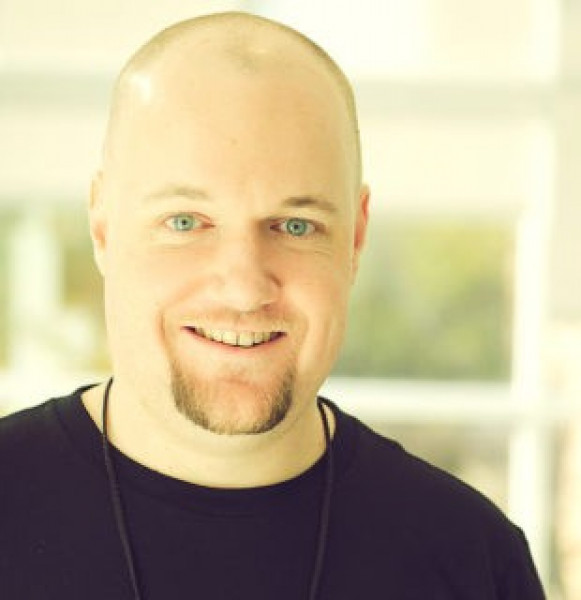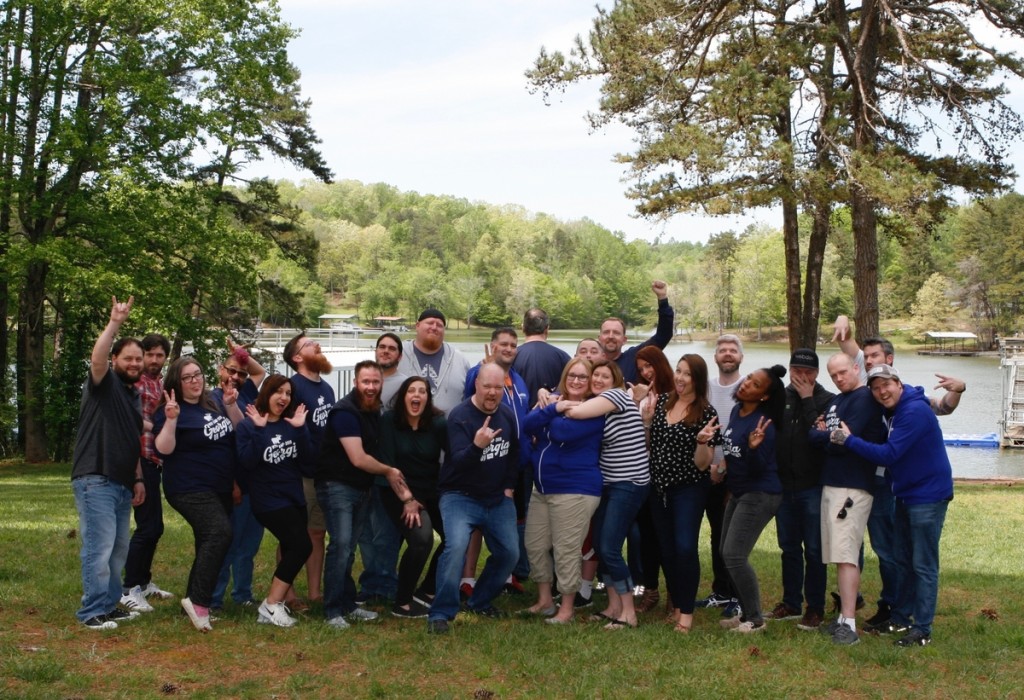
Company Interview with Brad, co-founder and CEO of WebDevStudios
What made you develop a remote work policy for your company?
I co-founded WebDevStudios back in 2008. We were a typical “coffee table” startup with no office, funding, or clients. Our location, which was near the Jersey Shore, actually made it difficult to find good talent to join our team.
Our first few hires were local, but as we began to grow, it became harder and harder to find good developers and designers. Because of this, we quickly learned that hiring the right person, regardless of their location, was going to be the key to our business growing and being successful.
We’ve been a 100% remote company for over a decade now!
Read 7 answers from other remote workers
What has been the benefit of allowing remote work?
Wearing PJs to work? Ha-ha! The single biggest benefit when working from home, in my opinion, is all of the extra time you get back to spend with your friends and family.
This is the time you would normally spend commuting to and from your job. That commute time, which is spent full of frustration and stress, is just wasted time in your life. Getting that time back for things that are actually important in your life is a huge benefit!
Read 10 answers from other remote workers
What have been some of the challenges?
It’s hard to replicate a group working session with a whiteboard.
Sometimes, when hashing through something challenging on a project, or working to come up with creative solutions, it would be nice to be huddled around a whiteboard with the project team.
We’ve found video calls with Zoom, and screen sharing, is a great way to work through those challenges when working remotely.
Read 13 answers from other remote workers
Do you have a hybrid or full-remote team?
Our team is 100% remote, so we have no office. All of our employees work remotely out of their homes, coffee shops, co-working spaces, or anywhere!
Read 12 answers from other remote workers
What are your company's most popular tools?
Remote tools have evolved so much in the past decade. Slack is our primary day-to-day communication tool. We also use Zoom for all of our meetings and prefer to have video so we can see the team.
For project management, we primarily use Jira and Confluence for all major projects.
Read 12 answers from other remote workers
What does a typical day look like for your remote teams?
Our typical day isn’t much different from a traditional agency office setup—our team logs into Slack when they start their day. The project managers outline tasks and goals for their project teams.
We also utilize Slack bots for daily standups to find out what our team is focused on and if any challenges are in their way.
Read 11 answers from other remote workers
How do you support or train your remote managers?
All new hires go through a standard onboarding process. This includes learning and working with the various tools and services we use on a daily basis.
Our engineers will actually build out a small feature set and interact with their training lead as if they were a client.
We also utilize online training through LinkedIn Learning. They have a massive library of online courses you can take in a variety of topics, including management.
Read 12 answers from other remote workers
Do you have a formal remote work policy?
Since our company is fully remote, we have our standard company policies, which include expectations for all employees and working remotely. We also have a readily available online employee handbook that answers all employee questions and helps set clear expectations for our team.
Read 11 answers from other remote workers
How has the role of HR changed when it comes to supporting your remote workforce?
The obvious difference is that even our HR team is remote. They conduct their one-on-ones, employee reviews, new hire interviews, disciplinary calls, etc., using Zoom video meetings.
Read 10 answers from other remote workers
How do you build trust and camaraderie among your remote workers?
Building close connections with your co-workers while working remotely can be a challenge. Our engineering team has a recurring all-hands call where they share interesting features they are building, new technologies they are experimenting with, and just generally get to know each other better.
We also have an end-of-week, all-hands video call, so everyone has the opportunity to see each other at least weekly.
It’s a fun time to wrap up the week, highlight our accomplishments and successes, give props to team members that stood out that week, share important company news, and wrap up the week on a fun, positive note.
Read 12 answers from other remote workers
Do you facilitate opportunities for face-to-face interactions?
Once a year, we host WDS Camp. This is an all-hands in-person company retreat. We fly out the entire team to a set location for the week. This is a great opportunity to form and strengthen relationships between employees and really get to know your co-workers on a more personal level.
We spend time reviewing and revamping our internal processes, test out and demo new tools, and share knowledge.
There’s also plenty of time for fun activities like our annual WDS Olympics, Survivor team challenge, and, of course, the Web Devie awards, which are the most exclusive awards given out to team members who go above and beyond each year!
Read 11 answers from other remote workers
How has remote work impacted your company's productivity?
Remote work is the primary reason for our company's success.
We have built an amazing company that specializes in WordPress design and development, which means we can hire the absolute best talent, regardless of their physical location.
Read 10 answers from other remote workers
What did we forget to ask Brad Williams ?
At RemoteHabits we're always trying to improve our interviews, what question should we have asked Brad Williams ?
Biography
Brad Williams
Brad Williams is the Co-Founder and CEO of the website design and development agency WebDevStudios. He is also a co-author of the books Professional WordPress and Professional WordPress Plugin Development. Brad is a US Marine Corps veteran and has been developing websites for over 20 years. In the last 10, Brad has specifically focused on open-source technologies like WordPress.
About WebDevStudios: WebDevStudios (WDS) is a website design and development agency that creates quality-driven, user-friendly experiences for startups to large enterprise projects. WDS is a full-service WordPress shop, providing end-to-end opportunities from strategy and planning to design and development, as well as full data migration, extensive API integrations, scalability, performance, and long-term guidance and maintenance.
Work remotely? Share your story on RemoteHabits!
Want to be interviewed? If you have a remote position, head over to the interview me page!
Looking for a remote job?
RemoteHabits Jobs has everything you need to find your next great remote work position!
Related Interviews
Interview with Nikita, an entrepreneur building a website to learn anything
Nikita is an entrepreneur working on his startup while optimizing his productivity—learn how he organizes his life and work to maximize happiness
Company Interview with Fraser, Global Head of Marketing at AnswerConnect
Friday newsletters, instant access to HR, & the use of GIFs in comms, Fraser and the AnswerConnect team could write a book on remote work best practices. Check out the process of how they make it all work.
Interview with Henry, a consultant who found remote work by saying No
Sometimes a "no" can lead to an exceptional opportunity. For Henry, that answer led to an ideal remote work career. In this interview, Henry shares his remote work tool stack, and essential tip for remote employees and managers.



